The Ultimate Guide to Compostable Packaging Materials 2025
In the rapidly evolving landscape of sustainability, businesses are increasingly adopting eco-friendly practices, with compostable packaging leading the charge. This innovative solution aligns seamlessly with the principles of the circular economy, moving beyond the traditional ‘take-make-waste’ model to one that emphasizes responsible disposal and minimal environmental impact.
Understanding Compostable Packaging
Compostable packaging refers to materials designed to break down naturally under specific conditions, leaving no harmful residues. Unlike conventional plastics that can persist in the environment for centuries, compostable packaging is typically derived from organic sources such as fibers, cardboard, or bioplastics.
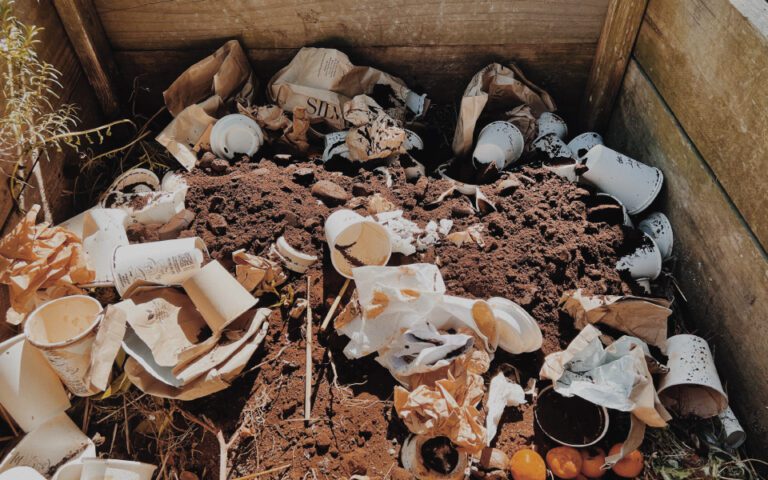
Not sure which type of compostable packaging is best for your business? Here’s what you should know about choosing between Compostable Alternatives home compostable solutions and other commercially compostable products.
Exploring Bioplastics
A significant component of compostable packaging is bioplastics, which are derived from renewable resources like agricultural waste, plant extracts (e.g., corn, soybeans, sugarcane), algae, and even used cooking oil. One prevalent bioplastic in packaging is Polylactic Acid (PLA), commonly sourced from cornstarch or sugarcane. These materials play a crucial role in reducing reliance on fossil fuels for plastic production.
Pros and Cons of Compostable Packaging
When considering compostable packaging for your business, it’s important to weigh the advantages and drawbacks.
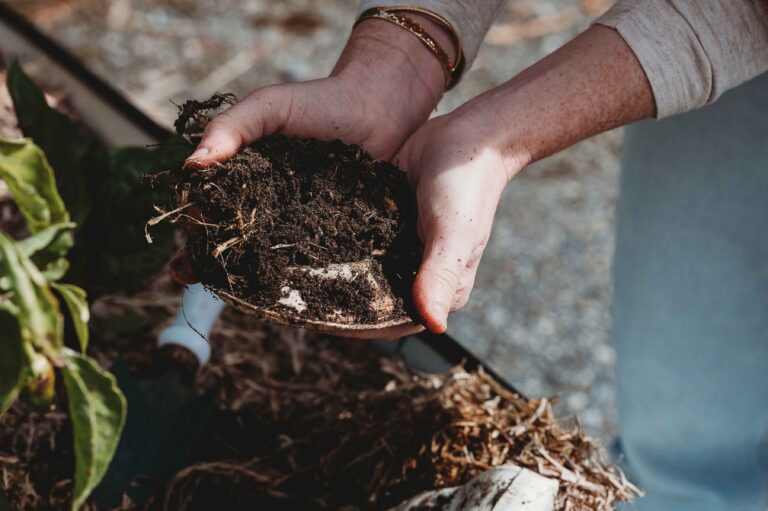
Pros
1- Lower Carbon Footprint: Bioplastics used in compostable packaging generate significantly fewer greenhouse gases compared to traditional plastics.
2- Rapid Decomposition: Compostable packaging breaks down much faster than conventional plastic, often within months under appropriate conditions.
3- Nutrient-Rich Output: The decomposition process yields nutrient-rich compost that enhances soil health and supports environmental ecosystems.
Cons
1- Proper Disposal Requirements: Compostable packaging requires specific conditions, such as industrial composting facilities, to break down effectively.
2- Composting Knowledge Needed: Both businesses and consumers need to be educated on proper composting practices to ensure the materials are disposed of correctly.
3- Limited Shelf Life: Due to their organic nature, compostable packaging materials often have a shelf life of around 12 months.
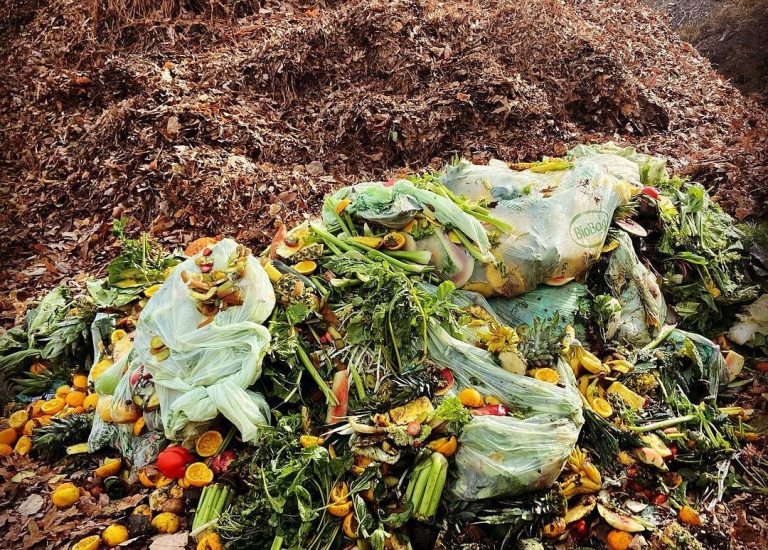
Paper and Cardboard: Perfect for Composting
Both paper and cardboard can be recycled (if clean) and composted, making them excellent choices for environmentally conscious packaging. Paper is a fully natural and renewable resource derived from trees. Cardboard, due to its carbon content, provides essential nutrients for compost heaps, breaking down efficiently over a few months.
Compostable Alternatives packaging products that can be composted
Leading the way in certified home compostable packaging, Compostable Alternatives offers a great range of compostable takeaway products for cafes and businesses:
Key Developments in Compostable Packaging (2025)
-
Market Growth: The global compostable packaging market is projected to grow from USD 112.49 billion in 2025 to USD 232.47 billion by 2034, with a compound annual growth rate (CAGR) of 8.4%. This growth is driven by increasing environmental awareness, stringent regulations, and a shift in consumer preferences towards sustainable products. https://towardspackaging.com
-
Corporate Commitments: Major corporations are setting ambitious sustainability goals. For instance, the U.S. Plastics Pact aims for 100% of plastic packaging to be reusable, recyclable, or compostable by 2025, with a target of effectively recycling or composting 50% of plastic packaging and achieving an average of 30% recycled or responsibly sourced bio-based content. https://usplasticspact.org
-
Technological Advancements: Innovations in bioplastics are addressing previous challenges related to compostability and environmental impact. Start-ups are developing bioplastics from renewable sources like corn, seaweed, and sugarcane, aiming for materials with smaller carbon footprints and improved biodegradability. However, scrutiny remains regarding their compostability and the need for industrial composting facilities. Financial Times
-
Consumer Trends: There is a growing consumer demand for sustainable packaging solutions. Whole Foods predicts that compostable packaging will be among the top food and drink trends in 2025, reflecting a broader shift towards eco-friendly practices in the food industry. Food & Wine
Educating Customers About Composting
For businesses adopting compostable packaging, it’s essential to educate customers on proper disposal methods. This includes:
Clear Labeling: Ensure packaging is clearly marked as compostable, with instructions on how to dispose of it properly.
Providing Information: Offer resources or guidance on local composting facilities or home composting practices.
Engaging Staff: Train staff to inform and encourage customers about the benefits and practices of composting.
By staying informed about the latest developments in compostable packaging and actively engaging in customer education, cafes and businesses can play a pivotal role in promoting sustainability and reducing environmental impact.
About the author:
Marion is a French entrepreneur, profoundly interested in the composting industry. Her words are her own thoughts and come from her research and learning. Although she quotes and sources the information she shares, Marion is not a scientist or a researcher and her opinions should not be understood as a scientific truth.
Through her findings and experience in the industry, she is attempting to support hospitality businesses and producers in their search of alternative choices to single-use and other types of plastic packaging. You should always do your own research to best inform yourself.
Share this article :
Learn more about compostable packaging in Australia
Marion Vigot
Compost Club Blog
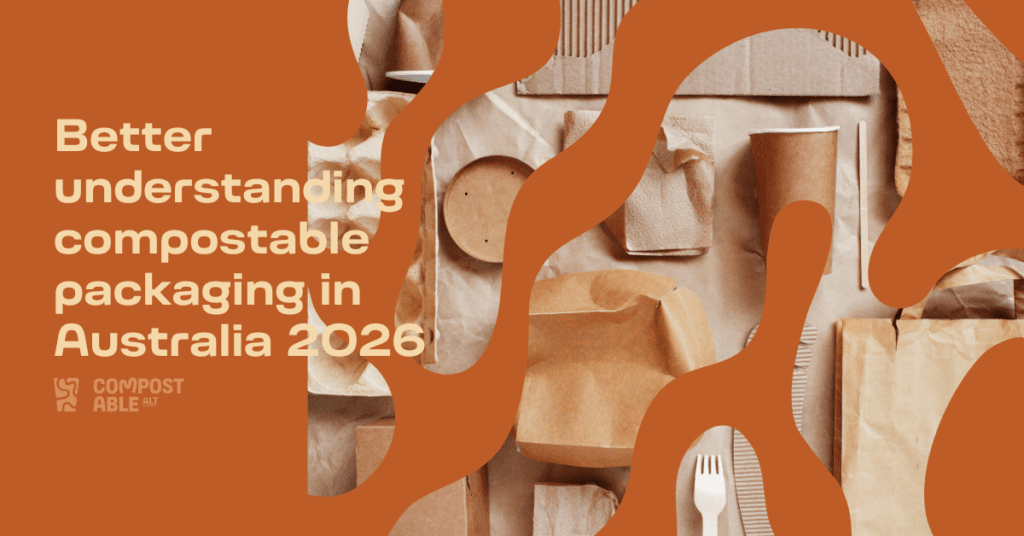
Better understanding compostable packaging in Australia in 2026
In Australia, we use 5.4 million tonnes of packaging per year, only 11,000 tonnes are certified compostable and 1,500 tonnes are recovered through composting. That’s an extremely low recovery rate. In this article we’ll have a look at the two different types of compostable packaging and the role of certifications to prevent greenwashing.
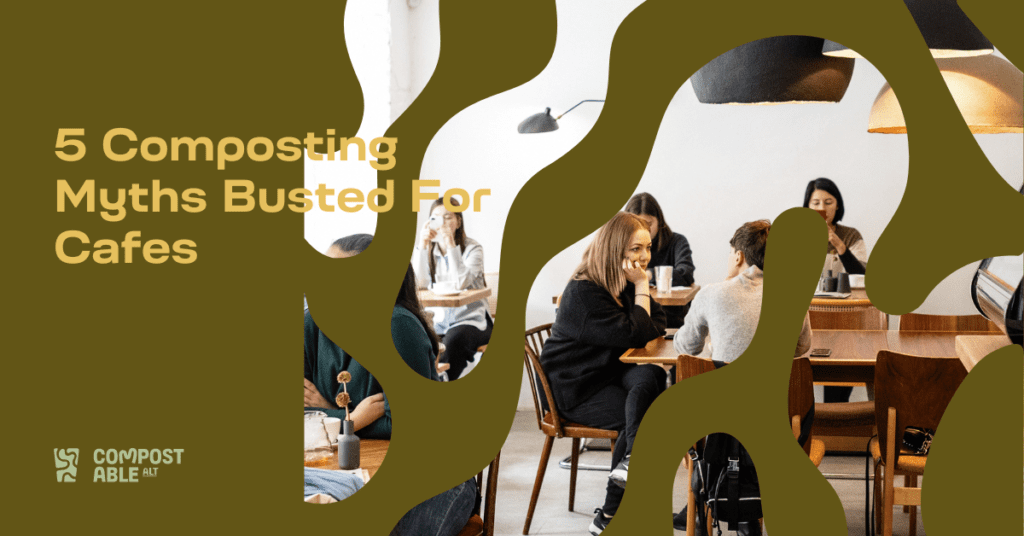
5 Coffee Takeaway Cup Composting Myths Busted for Cafes
Do you offer takeaway coffees? Let’s bust the 5 biggest coffee takeaway cup myths so you can make the right call for your business, your customers, and the planet.
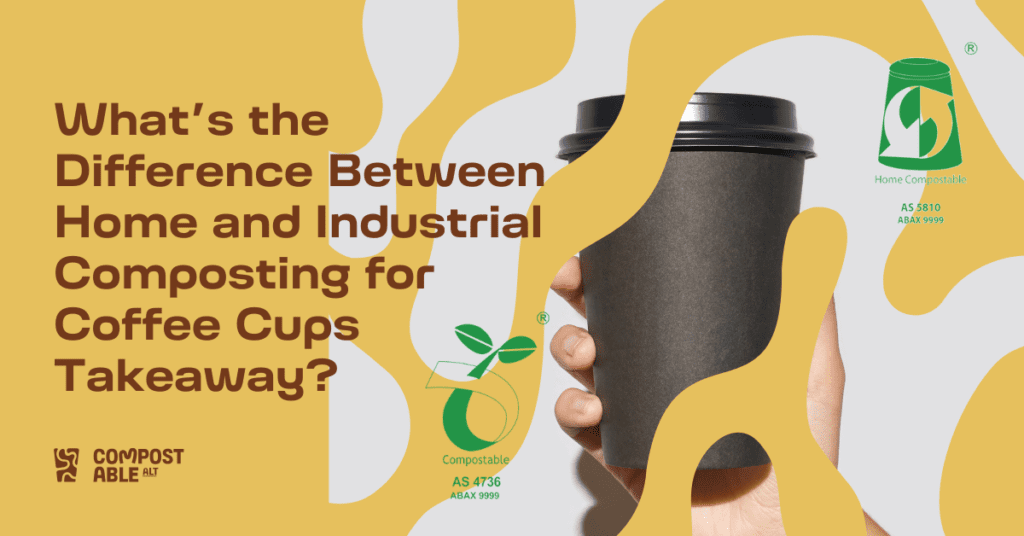
What’s the Difference Between Home and Industrial Composting for Coffee Cups Takeaway?
If you’re a café owner, a sustainability nerd, or just someone trying to do the right thing, knowing the difference between home and industrial composting is key to making better packaging decisions.



